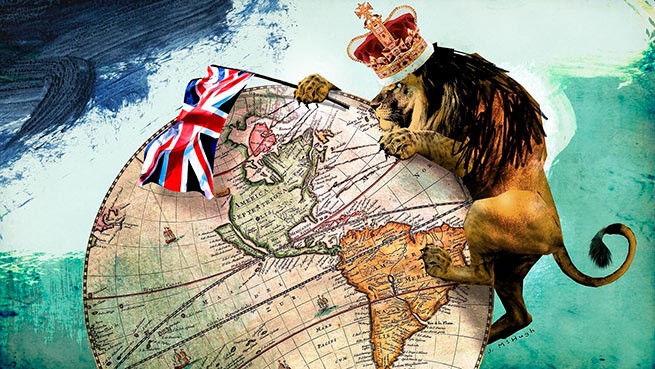We discuss the case of the British government’s treatment of the Parthenon Marbles, largely on the level of the British Prime Minister’s inappropriate behavior towards his Greek counterpart.
However, we do not delve into the essence of the problem. And it is not just that Britain is being unfair to Greece or not recognizing the obligation to return antiquities to the country of origin. The crux of the problem is that colonialism in Britain never ended.
After all, the seizure of the Parthenon marbles, which the British persistently try to present as a legal deal for that time between Lord Elgin and the Ottoman authorities, was part of such colonial logic.
We are used to admiring the great museums in European capitals, Paris, Berlin and London, and we forget when and how they were built. We forget that there was a time when European colonialists not only conquered territories of the world or brought them under their control, but also necessarily collected all kinds of trophies representing the culture of the conquered territories.
They then claimed that they were doing this to spread knowledge, but in reality it was also a way to confirm that the “whites” were now dominant over the “natives.” The large collections of antiquities in these museums are in fact monuments to colonialism, monuments to an era that included many violent and cruel practices.
Lord Elgin came not to colonize Athens, but, in fact, as a representative of a great colonial power, to make a deal with representatives of the Ottoman Empire, which was in crisis, precisely because he believed that, as a representative of the “white” West, he could collect antiquities that will be exhibited in the colonial metropolis.
It would seem that the British Empire does not exist today. But the logic of empire, culture and the corresponding perception of reality are preserved. We saw this in one of its manifestations in the way Brexit was handled. It was largely a Conservative nostalgia for the days when Britain was a great empire and the hope of regaining some of that greatness. We see this today in Britain’s insistence on making deals with its former colonies to send people seeking asylum.
This explains why today there are so many opponents of the return of the Parthenon marbles. This is not a fear that the British Museum will become less popular, but a fear that it will become another symbolic reminder that the days of empire are over.
And this also speaks to how we must persist in our demands. It is not enough to say that we now have a good modern museum where we can put them. The main thing is to show that the refusal to return monuments goes hand in hand with the refusal to get rid of the colonial past and its crimes. It also allows us to coordinate with all those forces that want Britain to finally take a step forward.







More Stories
Hurriyet: “Greece asked Turkey for permission to lay cable – Turkish jurisdiction recognized”
France: 'Chaos' on trains and metro. Airport evacuated. Dozens of attacks on athletes and tourists
What's Happening to America's Presidential Candidates (Video)